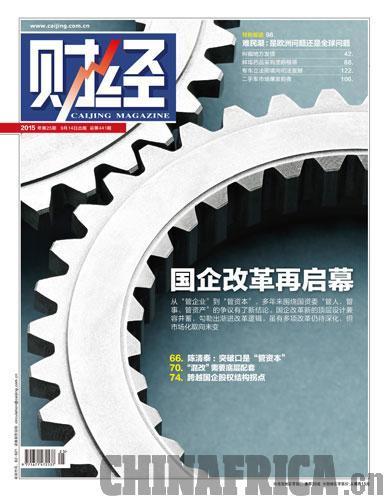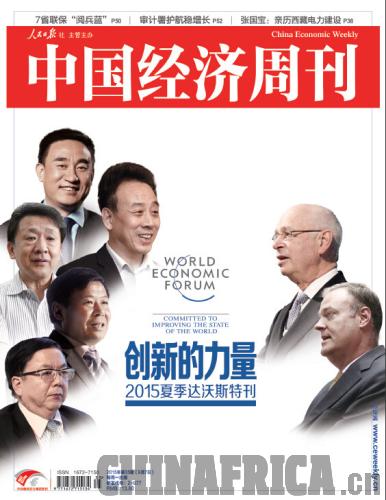| 
Reform of State-owned Enterprises
Caijing Magazine
September 14, 2015
Discussions about reform of China's state-owned enterprises (SOEs) have been heated. Xu Shaoshi, head of the National Development and Reform Commission, China's top economic planner, revealed that the general reform plan had been approved by the Central Government, which was released later at the Davos World Economic Forum in Dalian in September.
Sources involved in drafting the plan say SOEs will be re-categorized into commercial ones and non-profit public service ones. The function of the State-Owned Assets Supervision and Administration Commission of the State Council will be redefined as managing state-owned capital instead of enterprise property. Experts say that focusing on capital management will enable the government to exercise its stock rights as shareholders; therefore, it should concentrate on improving investment returns. This is a significant breakthrough in SOE reforms, noted Chen Qingtai, former Deputy Director of Development Research Center of the State Council.
 Easing Air Traffic Congestion Easing Air Traffic Congestion
Oriental Outlook
September 3, 2015
China's air space is becoming increasingly crowded, with the number of flights having increased from 3.4 million in 2006 to 7.5 million in 2014, a 120-percent rise.
The contradiction between limited air routes and flight schedules and the rapidly growing demand for air travel is becoming serious. It is getting harder for airlines to acquire flight schedules in busy airports, especially for new and small ones.
Seemingly, the problem is due to lack of airport infrastructure, like insufficient runways, but the root cause is insufficient flight routes. Take the Beijing Capital Airport for example. The limited 11 routes have to handle nearly 200 international and domestic flights daily. No wonder there is air traffic congestion.
To boost the civil aviation sector, reforms should be put into place, including improving flight schedule distribution systems, adding more flight routes and investing more in airport infrastructure.

Power of Innovation
China Economic Weekly
September 7, 2015
China has been encouraging domestic companies to go abroad since the late 1990s. In 2014, its direct investment overseas exceeded $100 billion, becoming the third largest source of foreign direct investment in the world.
China Economic Weekly, in this issue, looks at the globalization of Chinese companies. It notes that the purpose of Chinese firms' globalization is no longer to merely gain a presence on international markets, but to foster innovation and establish a sustainable globalization path. Innovation is not only about technology or products, but also about service and management systems. Chinese companies are suggested to promote personnel localization and give them sufficient authority to facilitate innovation.
Accommodating Seniors' Needs
Xinhua Daily Telegraph
September 8, 2015
China recently released a document requiring local governments to provide residents with convenient venues for square dancing, a fitness exercise popular mainly among the elderly and retirees in cities. It also calls for the establishment of a management system by the government and social organizations. The document represents another move to regulate square dancing in China this year. In March, the government named 12 square dances to be promoted nationwide.
Square dancing has long caused complaints by residents for loud noise and occupation of public space. The document indicates that such problems have caught the attention of the government against the backdrop of an aging society.
In 2014, the number of senior citizens aged above 60 reached 212.42 million, accounting for over 15 percent of the population in China. According to the UN's latest estimates, China's senior citizens will comprise 36.5 percent of the population by 2049, surpassing most developed countries.
A pension system alone is inadequate to address challenges posed by an aging society. Senior citizens' preferences and needs should be taken into consideration in urban planning. Also, in order to alleviate social conflicts, policies should be attuned to senior citizens. Solving the problems caused by square dancing is only a beginning. To cope with an aging society, a lot more needs to be done.
|